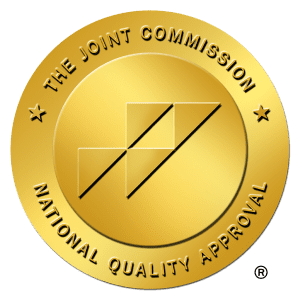
At Grata House, our mission is to re-imagine the treatment of trauma, substance dependence, and other co-occurring conditions. Part of this mission involves educating our community about the serious health consequences of untreated alcohol use disorder. One of the most devastating neurological conditions linked to chronic alcohol consumption and long-term alcoholism is Wernicke-Korsakoff Syndrome, commonly known as “wet brain syndrome” or “alcoholic dementia.” According to the National Institute on Alcohol Abuse and Alcoholism (NIAAA), this serious brain condition often remains undiagnosed in approximately 80% of affected patients due to its complex symptom presentation and similarities to other conditions.
What is Wet Brain (Wernicke-Korsakoff Syndrome)?
Wernicke-Korsakoff Syndrome (WKS) is a serious brain disorder and form of dementia caused primarily by thiamine (vitamin B1) deficiency. While this neurological damage can occur in anyone with severe malnutrition or gastrointestinal disorders, it’s most commonly observed in individuals with a history of alcohol misuse and heavy drinking over a prolonged period.
According to Ausmed’s health education resources, WKS presents in approximately 3% of the general population in Australia. WKS most commonly affects males who are over the age of 45 years and who have a long history of alcohol abuse. Research published in the journal Alcohol and Alcoholism found that men represent a significant majority of those affected, with data showing they account for approximately 73-78% of all WKS cases, typically diagnosed around age 57.
WKS is actually a two-stage brain condition consisting of:
- Wernicke’s Encephalopathy: The acute phase, potentially reversible condition requiring emergency treatment and immediate medical attention.
- Korsakoff’s Psychosis: The chronic stage, often leading to permanent damage that typically develops as Wernicke’s encephalopathy symptoms subside.
Understanding the Causes
The primary cause of Wernicke-Korsakoff Syndrome is a severe deficiency of thiamine (vitamin B1). This B1 deficiency plays a key factor in brain health, helping your cells convert sugar into energy. When thiamine levels fall critically low, brain tissue cannot generate sufficient amounts of energy to function properly, leading to brain damage.
In individuals with alcohol use disorder, thiamine deficiency occurs through several mechanisms:
- Excessive alcohol consumption directly inhibits the absorption of thiamine in the digestive tract
- Chronic alcohol abuse irritates the stomach and intestines, further reducing nutrition levels and nutrient absorption
- Heavy drinkers often maintain poor dietary habits lacking essential vitamins
- Alcohol consumption interferes with the liver’s ability to store thiamine and can cause liver disease
- Alcohol prevents the conversion of thiamine into its active form, disrupting chemical messengers in the body
- Poor nutrition combined with excessive alcohol intake creates a dangerous cycle
Recognizing Wet Brain Symptoms
Early recognition of wet brain symptoms is vital for preventing irreversible damage to the brain. Healthcare providers look for common signs that typically appear in two distinct phases:
Wernicke’s Encephalopathy Symptoms (Initial Stage)
- Confusion and disorientation: The person may appear dazed or have difficulty with mental activity and processing information
- Loss of coordination (ataxia): Unsteady gait, balance problems, impaired coordination, difficulty with muscular coordination and walking
- Ocular disturbances: Abnormal eye movements (nystagmus), rapid eye movement, disturbances in eye muscles, double vision, drooping eyelids
- Lack of motivation: Reduced awareness of surroundings, apathy, diminished interest in daily activities
- Fatigue and lethargy: Unusual tiredness that doesn’t improve with rest
- Changes in vital signs: Abnormal heart rate, blood pressure fluctuations, loss of body heat
These acute symptoms form what doctors call the “classic triad” of the condition (confusion, ataxia, and eye abnormalities). However, research from the National Institute on Alcohol Abuse and Alcoholism (NIAAA) indicates that only about 10% of patients exhibit all three features of this classic triad, making diagnosis challenging. According to research published in the journal Alcohol and Alcoholism, approximately 23% of patients fulfilled the classic WE triad, while about 70.6% presented with at least two out of four signs or symptoms using Caine’s criteria for WE.
Wernicke’s encephalopathy is a medical emergency with intervention critical. Without adequate treatment, it can progress to the more severe phase.
Korsakoff’s Psychosis Symptoms (Advanced Stages)
- Profound memory loss: Especially difficulty forming new memories (anterograde amnesia) and gaps in memory
- Confabulation: Creating incorrect memories or fabricated stories to fill memory gaps
- Retrograde amnesia: Inability to recall recent events while older long-term memory may remain intact
- Cognitive symptoms: Trouble acquiring new information or skills, impaired cognitive function
- Personality changes: May include lack of motivation, irritability, or withdrawal from social activities
- Hallucinations: In severe cases, particularly during withdrawal symptoms
- Deterioration of motor skills: Poor reflexes and further loss of coordination
Diagnostic Process and Treatment Options
Diagnosing Wernicke-Korsakoff Syndrome involves a thorough clinical evaluation:
- Comprehensive patient history review, especially patterns of alcohol intake and dietary habits
- Physical examination and assessment of neurological symptoms
- Blood tests to measure levels of thiamine and liver enzymes
- Cognitive assessments to evaluate memory issues and cognitive function
- Magnetic Resonance Imaging (MRI) to detect changes in brain tissue, particularly in the mammillary bodies
Effective treatment approaches include:
- Emergency thiamine replacement: Typically administered intravenously for rapid absorption
- Complete abstinence from alcohol: Absolutely critical to prevent further neurological damage
- Diet rich in nutrients: Addressing overall nutritional deficiencies with a balanced diet
- Oral supplements: Ongoing thiamine supplementation after the acute phase
- Supportive care: Managing specific physical symptoms and cognitive symptoms as they arise
- Cognitive-behavioral therapy: Helping patients develop healthier coping mechanisms
- Comprehensive addiction treatment: A multidisciplinary team addressing the underlying alcohol addiction with personalized treatment plans
Long-Term Outlook and Recovery Process
The prognosis for wet brain syndrome depends largely on when treatment begins and the extent of brain damage. When caught in the initial stage, many acute symptoms of Wernicke’s encephalopathy can improve with proper treatment. However, once Korsakoff’s psychosis develops in the chronic phase, the damage is often permanent, affecting quality of life significantly.
According to the Alzheimer’s Society, about 25% of people affected by Wernicke–Korsakoff syndrome who receive treatment make a good recovery. About 50% make a partial recovery and still need support to manage their lives, while approximately 25% of people with the condition make no recovery and may need long-term care in a specialist residential care home.
Research published in Alcohol and Alcoholism found concerning long-term mortality rates for those with alcohol-related WKS. The median follow-up of patients with WE syndrome was 5.3 years, with a cumulated mortality of 45%. Overall, 50% of patients would be expected to die within 8 years of a WE episode, with the main causes of death including serious bacterial infections (44.5%) and cancer (33.3%). Without adequate treatment, the condition progressively worsens, leading to severe complications including heart disease, kidney failure, and can be life-threatening, significantly reducing life expectancy.
Prevention and Risk Factors
Preventing this form of brain damage largely involves addressing these risk factors:
- Maintaining abstinence from alcohol or practicing moderate consumption
- Ensuring adequate thiamine intake through a healthy diet rich in essential vitamins
- Seeking professional treatment for alcohol abuse at early stages
- Addressing poor nutrition and weight loss in high-risk individuals
- Regular health monitoring for those with a history of heavy drinking
- Awareness of the impact of thiamine deficiency, particularly in those with gastrointestinal disorders
How Grata Can Help: Our Comprehensive Care Approach
At Grata House, we understand the complex relationship between developmental trauma, alcohol addiction, and serious health issues like Wernicke-Korsakoff Syndrome. Our comprehensive treatment includes:
- Medically supervised detoxification to safely manage withdrawal symptoms
- Nutritional therapy and thiamine supplementation addressing B1 deficiency
- Evidence-based addiction treatment in a supportive environment
- Trauma-informed care
- Cognitive therapies to address aspects of addiction and memory disorder
- Holistic healing approaches supporting brain health and recovery
- Family support and aftercare planning for the recovery journey
If you or a loved one is struggling with alcohol abuse and showing any signs of cognitive impairment or memory loss, seeking professional treatment immediately is crucial. Our compassionate multidisciplinary team at Grata House is here to provide the specialized care needed through personalized treatment plans that address both the addiction and its long-term complications.
Begin Your Recovery Journey: Contact Grata House Today
Your journey to wellness begins with a single step in the recovery process. Our healthcare providers offer effective care for those affected by excessive alcohol consumption and its severe complications. Contact us today to learn more about our programs and how we can help you or your loved one recover from alcohol use disorder and prevent serious neurological damage like wet brain syndrome.
Remember, at Grata House in Ventura County, “sober” is just the beginning of the greatest adventure yet! Through abstinence from alcohol and comprehensive treatment, a healthier future is possible.

